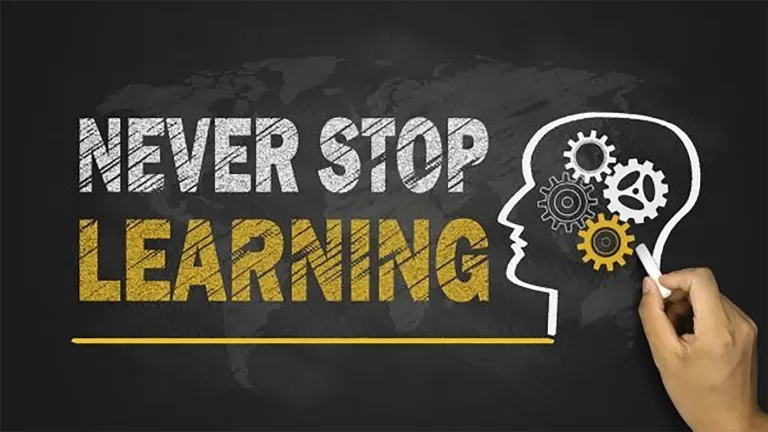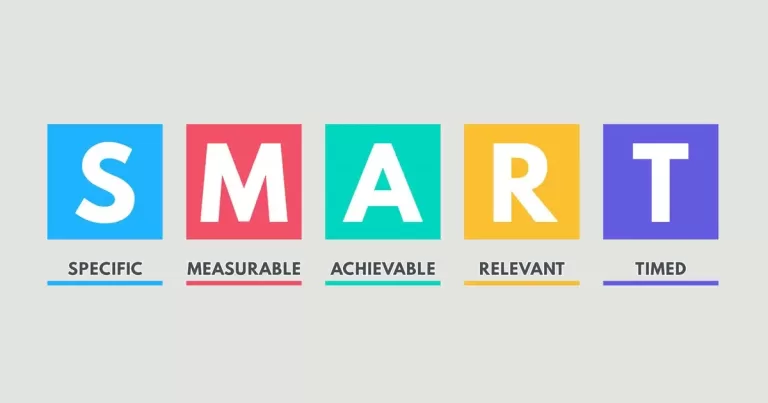
How to stay motivated
This page may contain affiliate links. If you choose to purchase after clicking a link, I may receive a commission at no extra cost to you.
Motivation is the fuel that drives us to achieve our goals and pursue our passions. But sometimes, it can be hard to maintain a high level of motivation, especially when we face challenges, setbacks, or distractions. How can we keep ourselves motivated in the long run? Here are some tips that might help you.
- Set SMART goals. SMART stands for Specific, Measurable, Achievable, Relevant, and Time-bound. These are the criteria that make your goals clear, realistic, and meaningful. By setting SMART goals, you can have a clear vision of what you want to accomplish and how to measure your progress and success.
- Break down your goals into smaller tasks. Sometimes, our goals can seem overwhelming or daunting, which can make us lose motivation. To avoid this, try breaking down your goals into smaller and more manageable tasks. This way, you can focus on one thing at a time and celebrate your achievements along the way.
- Reward yourself for your efforts. Rewards are a great way to boost your motivation and keep yourself on track. Whenever you complete a task or reach a milestone, treat yourself to something that makes you happy or proud. It could be anything from a snack, a movie, a book, or a hobby. Rewards can also help you create positive associations with your goals and motivate you to keep going.
- Find a support system. Having people who support you and encourage you can make a huge difference in your motivation level. Whether it’s your family, friends, colleagues, or mentors, find someone who can listen to you, give you feedback, cheer you on, or hold you accountable. You can also join online communities or groups that share your interests or goals and learn from others who are on the same journey as you.
- Remind yourself of your purpose. Sometimes, we might forget why we started something or what we hope to achieve from it. This can make us lose sight of our motivation and feel discouraged or bored. To prevent this, try to remind yourself of your purpose and how your goals align with your values and passions. You can also write down your reasons for pursuing your goals and review them regularly to keep yourself inspired and motivated.
Goal setting Software & Apps
If you’re looking for a way to achieve your goals faster and easier, you might want to consider using goal setting software and apps. These tools can help you track your progress, stay motivated, and overcome challenges along the way. Here are some of the benefits of using goal setting software and apps, and some of the best ones you can try today.
One of the main benefits of using goal setting software and apps is that they can help you clarify your vision and direction. By setting SMART goals (specific, measurable, achievable, relevant, and time-bound), you can break down your big dreams into manageable steps and focus on what matters most. Goal setting software and apps can also help you create action plans and reminders to keep you on track and accountable.
Another benefit of using goal setting software and apps is that they can help you measure your progress and celebrate your achievements. By tracking your milestones and results, you can see how far you’ve come and how close you are to reaching your goals. You can also get feedback and support from other users who are working on similar goals or join online communities and forums to share your experiences and learn from others. Goal setting software and apps can also reward you with badges, points, or other incentives to keep you motivated and inspired.
Finally, one of the best benefits of using goal setting software and apps is that they can help you overcome obstacles and challenges that might otherwise derail your efforts. By identifying potential risks and problems, you can prepare for them in advance and find solutions or alternatives. You can also use goal setting software and apps to access helpful resources and tips on how to deal with common issues such as procrastination, distraction, or lack of confidence. Goal setting software and apps can also help you adjust your goals and plans as needed to adapt to changing circumstances or new opportunities.
As you can see, goal setting software and apps can be a great way to help you achieve your goals faster and easier. Some of the best ones you can try today are:
- Goalify: This app helps you create SMART goals and track your habits and routines. You can also join challenges and groups to compete with others or get support.
- Lifetick: This app helps you align your goals with your core values and create a personal vision statement. You can also track your progress with charts and graphs and share your achievements with others.
- Coach.me: This app helps you build new skills and habits by providing coaching, feedback, and encouragement. You can also join communities of like-minded people who are working on similar goals or hire a professional coach for personalized guidance.
- Strides: This app helps you track any goal or habit with customizable trackers and reminders. You can also view your trends and statistics and set SMART targets for each goal.
- StickK: This app helps you commit to your goals by creating a binding contract with yourself or others. You can also set stakes or rewards for achieving or failing to achieve your goals and get support from referees or supporters.
These are just some of the many goal setting software and apps available today. You can choose the one that suits your needs, preferences, and budget. The important thing is to start using them today and see how they can help you achieve your goals faster and easier.
Famous Motivational Speakers
Watch, listen and learn from renowned experts.
Are you feeling stuck in a rut? Do you need some inspiration to get out of your comfort zone and pursue your dreams? If so, you might want to listen to some of the most famous motivational speakers in the world. These are people who have overcome challenges, achieved success, and shared their wisdom with millions of others. Here are some of the best motivational speakers you can learn from:
- Tony Robbins: Tony Robbins is one of the most popular and influential motivational speakers of all time. He has coached celebrities, athletes, entrepreneurs, and presidents on how to improve their lives and achieve their goals. He is also the author of several best-selling books, such as Awaken the Giant Within and Unlimited Power. Tony Robbins teaches people how to master their emotions, overcome their fears, and unleash their potential.
- Les Brown: Les Brown is a former radio DJ and politician who became one of the most sought-after motivational speakers in the world. He has a powerful story of overcoming poverty, abuse, and low self-esteem to become a successful speaker and author. He is known for his charismatic and humorous style of delivering inspiring messages. Les Brown encourages people to believe in themselves, pursue their passions, and never give up.
- Oprah Winfrey: Oprah Winfrey is not only a media mogul and philanthropist, but also a motivational speaker who has inspired millions of people around the world. She has overcome adversity, such as childhood poverty, sexual abuse, and racism, to become one of the most influential and respected women in history. She is also the founder of the Oprah Winfrey Network (OWN) and the Oprah Winfrey Leadership Academy for Girls. Oprah Winfrey empowers people to live their best lives and make a positive difference in the world.
- Simon Sinek: Simon Sinek is a leadership expert and author who has popularized the concept of “Start With Why”. He has given one of the most watched TED talks of all time, where he explains how great leaders inspire action by communicating their purpose and vision. He is also the author of several books, such as Start With Why and Leaders Eat Last. Simon Sinek helps people find their why, their reason for doing what they do, and how to communicate it effectively.
- Brené Brown: Brené Brown is a research professor and author who has studied topics such as vulnerability, courage, shame, and empathy. She has given two viral TED talks, where she shares her insights on how to embrace vulnerability and live wholeheartedly. She is also the author of several books, such as Daring Greatly and The Gifts of Imperfection. Brené Brown teaches people how to be authentic, courageous, and compassionate in their personal and professional lives.
Discover what you really want from life
Have you ever felt lost, confused, or unsure about your purpose in life? Do you sometimes wonder if you are living the life you truly desire, or just following someone else’s expectations? If you answered yes to any of these questions, then this blog post is for you!
In this post, I will share with you some tips and exercises that can help you discover what you really want from life. These are not quick fixes or magic formulas, but rather tools that can guide you on your journey of self-discovery and personal growth. By applying these tips and exercises, you will be able to:
- Clarify your values and passions
- Identify your strengths and talents
- Set meaningful and realistic goals
- Take action and overcome obstacles
- Celebrate your achievements and learn from your failures
Ready to get started? Let’s dive in!
Tip #1: Clarify your values and passions
One of the first steps to discover what you really want from life is to clarify your values and passions. Values are the principles that guide your decisions and actions, while passions are the things that make you feel alive and excited. Knowing your values and passions can help you align your life with what matters most to you.
To clarify your values and passions, you can try this exercise:
- Make a list of 10 things that are important to you in life. These can be anything from family, friends, health, spirituality, career, hobbies, etc.
- For each item on your list, ask yourself why it is important to you. What does it give you? How does it make you feel?
- Rank your list from most important to least important. This will help you prioritize your values and passions.
- Review your list and see if there are any items that are conflicting or incompatible with each other. For example, if you value freedom and adventure, but also security and stability, how can you balance them?
- Choose one or two items from your list that are the most important to you right now. These are your core values and passions. Write them down on a piece of paper or a sticky note and keep them somewhere visible.
Tip #2: Identify your strengths and talents
Another step to discover what you really want from life is to identify your strengths and talents. Strengths are the things that you are naturally good at, while talents are the skills that you have developed through practice and experience. Knowing your strengths and talents can help you leverage them for your success and happiness.
To identify your strengths and talents, you can try this exercise:
- Make a list of 10 things that you are good at or enjoy doing. These can be anything from writing, singing, cooking, teaching, etc.
- For each item on your list, ask yourself how it makes use of your strengths and talents. What are the specific abilities or qualities that enable you to do it well?
- Rank your list from most enjoyable to least enjoyable. This will help you identify your passions and preferences.
- Review your list and see if there are any items that are related or complementary to each other. For example, if you enjoy writing and teaching, how can you combine them?
- Choose one or two items from your list that are the most enjoyable to you right now. These are your core strengths and talents. Write them down on a piece of paper or a sticky note and keep them somewhere visible.
Tip #3: Set meaningful and realistic goals
The next step to discover what you really want from life is to set meaningful and realistic goals. Goals are the specific outcomes that you want to achieve in a certain time frame. Setting goals can help you focus your energy and resources on what matters most to you.
To set meaningful and realistic goals, you can try this exercise:
- Based on your core values, passions, strengths, and talents, write down one big goal that you want to achieve in the next year. This should be something that excites you and challenges you.
- Break down your big goal into smaller sub-goals that are SMART: Specific, Measurable, Achievable, Relevant, and Time-bound. For example, if your big goal is to write a book, some of your sub-goals could be: write an outline by the end of the month; write one chapter per week; finish the first draft by June; etc.
- Write down the action steps that you need to take.








Leave a Comment